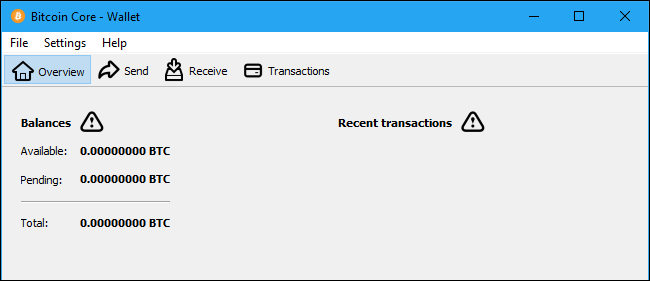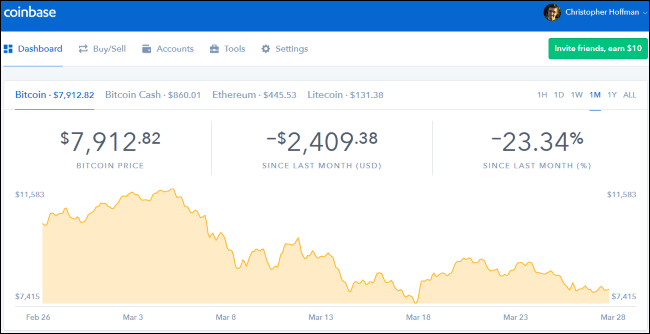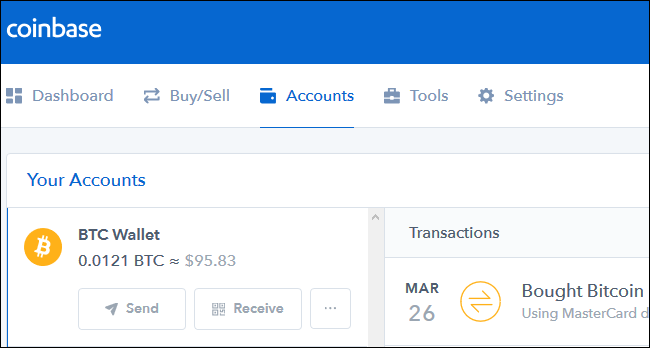
How Do Bitcoin Wallets Compare with Exchanges in Managing Cryptocurrency?

How Do Bitcoin Wallets Compare with Exchanges in Managing Cryptocurrency?
Quick Links
- What Is a Bitcoin Wallet?
- What Is a Bitcoin Exchange?
- But Exchanges Have Integrated Wallets, Too
- The Exchange Controls the Wallet’s Private Keys
A Bitcoin wallet is basically a software program in which you store Bitcoin. An exchange lets you convert “real money” like US dollars to Bitcoin. Exchanges also provide a wallet—but you don’t necessarily have full control of that wallet.
We’re not recommending you invest in Bitcoin. But, if you’re putting money into Bitcoin—or you’re just interested in how it works—you should know this stuff.
What Is a Bitcoin Wallet?

So, we mentioned before that a Bitcoin wallet is a software program in which you store Bitcoin. While true, it’s drastic oversimplification. Bitcoins are never really “stored” anywhere. To understand what a Bitcoin wallet is, it’s important to understand what Bitcoin is and how it works .
Related: What Is Bitcoin, and How Does it Work?
A Bitcoin wallet actually contains one or more private keys that allow you to sign transactions. These private keys are the mathematical proof that you indeed own a certain amount of Bitcoin. Think of these private keys as secret codes that allow you to spend that Bitcoin. The blockchain is a record of all these transactions.
These private keys are very important. If someone steals your private keys—say, if they had malware running on your computer—they could spend your Bitcoin. For example, they could use your private keys to send your Bitcoin to their own Bitcoin address. Your Bitcoin would then be stored in their wallet and would be secured by their own private keys, to which you wouldn’t have access. That’s why it’s very important to store your Bitcoin wallet and its private keys securely.
Attackers aren’t the only concern. If you lose the wallet and your private keys, you’ll also lose access to all your Bitcoin. That’s why it’s important to have backup copies of your Bitcoin wallet, too—just like you’d have backup copies of any important data.
If Bitcoin was being widely used for payments, a Bitcoin wallet is the program you’d use to send and receive Bitcoin for day-to-day transactions, too. You might want to store only a small amount of Bitcoin in a wallet you carry with you—for example, on your phone—and leave a larger amount of Bitcoin in a more secure location, similar to how you don’t carry your life savings in cash in your physical wallet. There are some websites that accept cryptocurrency payments , however, Bitcoin is largely being used for speculative investing at the moment.
In addition to typical software Bitcoin wallets you might run on a PC or phone, there are hardware-based Bitcoin wallets like the Trezor or Ledger . You could also use a paper Bitcoin wallet, which has a public Bitcoin address and private key printed on it. This is effectively an offline Bitcoin wallet, and you could store it in a safe or other secure location without worrying that it could be compromised by malware running on your PC. Of course, anyone who acquired the piece of paper would have the ability to spend your Bitcoin.
What Is a Bitcoin Exchange?

A Bitcoin exchange is a website or service that lets you convert “fiat currency” like US dollars and Euros to Bitcoin. These websites also let you convert that Bitcoin back to US dollars or your fiat currency of choice. In other words, exchanges buy and sell Bitcoin at the current market rate.
If exchanges didn’t exist and you wanted to buy Bitcoin with US dollars, you’d have to find someone with Bitcoin, agree on an exchange rate, pay them, and then have them send that Bitcoin to your wallet. And, to sell Bitcoin, you’d have to find someone who wanted to purchase it from you. Exchanges simplify this process, providing a single place you can purchase or sell Bitcoin at the current market rate using your bank account.
But Exchanges Have Integrated Wallets, Too

Exchanges like Coinbase , which we think is the best choice if you’re looking to buy Bitcoin , provide you with a Bitcoin wallet hosted by that website. Think of this as a sort of web-based Bitcoin wallet.
Related: How to Buy Bitcoin the Easy Way
So, when you head to Coinbase, create an account, and buy some Bitcoin, that Bitcoin isn’t immediately sent to a Bitcoin wallet address you provide. Instead, it’s stored in a wallet in your Coinbase account. You can sign into the Coinbase app or website, view your balance, and sell the Bitcoin if you want. Coinbase does allow you to transfer the Bitcoin from the Coinbase exchange to another Bitcoin wallet, if you like, but you have to go out of your way to do that.
This dramatically simplifies the process of buying Bitcoin. You don’t need to install and manage a Bitcoin wallet program. You don’t have to back up your wallet. You don’t have to worry about losing your Bitcoin if you forget your wallet’s password or lose all copies of the wallet files. Instead, you just create an account, and then you can access your Bitcoin by signing into that account. If you forget your account’s password, you can go through an account recovery process.
In this situation, the exchange sort of functions like a bank. When you store your Bitcoin with Coinbase, Coinbase holds onto your Bitcoin for you and gives you access to it. But the Bitcoin is under their control, and not yours. And, while banks are heavily regulated in the US and other countries, it’s important to remember that Bitcoin exchanges are not subject to all the same regulations.
The Exchange Controls the Wallet’s Private Keys
Here’s the big concern: When you store your Bitcoin in a wallet controlled by an exchange, like Coinbase, that exchange actually holds the private keys. In other words, it’s sort of like the exchange storing your Bitcoin in their own wallet and giving you access via an account. You don’t actually have the Bitcoin in your own wallet that you fully control, as you would with a traditional Bitcoin wallet.
You’re placing a lot of trust in the exchange if you store your Bitcoin there. For example, you could lose your Bitcoin if the exchange were hacked, a rogue employee stole your private keys, or if the owners of the exchange took the money and ran. That’s one reason we recommend Coinbase, which is a bigger company with a decent track record that’s based in the USA, over smaller exchanges that may not be as trustworthy.
The design of web-based Bitcoin wallets that function like banks is actually counter to some of Bitcoin’s original intent. Bitcoin promises a totally decentralized system that allows you to store your own money without trusting anyone else. And you can—if you store it in your own wallet. If you store it with an exchange, you’re relying on that exchange like you’d rely on a bank.
Of course, there are trade-offs. When you rely on an exchange, you have a more convenient experience. You don’t have worry about securing, backing up, or otherwise managing your own Bitcoin wallet. The exchange’s website will be more secure than many people’s computers.
Should you hold your Bitcoin in a web-based wallet provided by in an exchange, or your own Bitcoin wallet? There’s no right answer for everyone, but it’s important to understand the trade-offs if you hold Bitcoin.
Image Credit: IhorL /Shutterstock.com.
- Title: How Do Bitcoin Wallets Compare with Exchanges in Managing Cryptocurrency?
- Author: Nova
- Created at : 2024-08-26 17:22:55
- Updated at : 2024-08-29 12:48:10
- Link: https://blog-min.techidaily.com/how-do-bitcoin-wallets-compare-with-exchanges-in-managing-cryptocurrency/
- License: This work is licensed under CC BY-NC-SA 4.0.